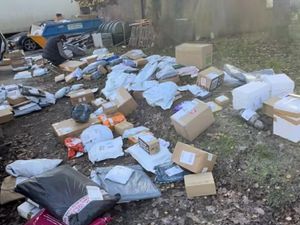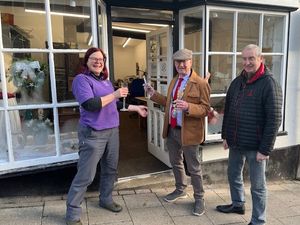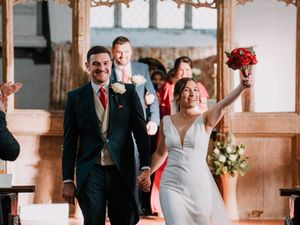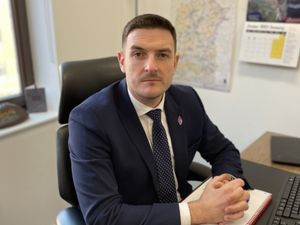The hunting ban 10 years on: What difference has it made?
Peter McColgan looks towards the boisterous pack of hounds jumping up the railings of their kennel, competing for their master's attention.
"What is there not to like about them?" says the huntsman of the Albrighton & Woodland Hunt, based just outside Albrighton.
For the 48-year-old from Renfrewshire, hunting and hounds have been at the centre of his life, ever since he was taken on his first hunt at the age of four.
It is 10 years today since the ban on hunting with hounds came into force, but what impact has the legislation had on the hunts which operate up and down Britain?
Ostensibly, not a lot. According to joint secretary Julian Hill, membership of the Albrighton hunt has increased since the ban, and now stands at around 350, while thousands continue to turn out for its traditional Boxing Day meetings at Newport.
As we speak, the hunt is preparing for a special children's day at Pattingham, near Wolverhampton, which aims to introduce the next generation to country pursuits.
Mr McColgan says: "We probably have benefited from the publicity surrounding the ban.
"When the ban came in 10 years ago, it was a time of great uncertainty, but we have managed to come through it."
Mr McColgan, who was introduced to the sport by his grandfather in his home town of Paisley, says the ban has had an impact, though.
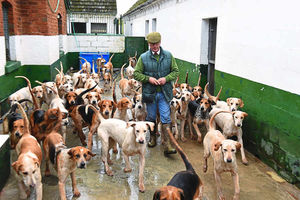
Because hounds can no longer be set to chase foxes, hunt organisers now trail an artificial scent ahead of the hounds which are then set to follow them. But Mr McColgan says it takes time for the dogs to adapt to the new methods.
"The ban has made a difference," he says. "We're hunting within the law, but we're hunting within the countryside where there are foxes about.
"As soon as we know we have possibly crossed the line of a fox, or when the scent has changed from an artificial one to a natural one, we have to call the hunt to a halt.
"This is the first generation of hounds since the ban came in, and it will take them time to adapt.
"The hounds have been based here for centuries, and many of them can trace their blood line back 200 years or more."
Despite all the opinion polls pointing to another hung parliament at the General Election, Mr McColgan is convinced that the ban is only a temporary measure and believes the legislation will soon be repealed.
"I'm sure a future government will lift the ban," he says.
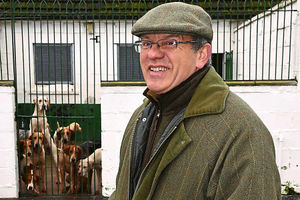
"They are working dogs, they have been bred to work, and it is important that they are allowed to do that work."
Mr McColgan, who moved to Albrighton around 18 months ago, says he knew from an early age what he wanted to do for a living.
"I didn't like school, and school didn't like me very much either, so I left as soon as I could, I had always wanted to work with animals."
What is it about the sport that makes them so determined to keep going?
"There's an excitement to it, it's hard to explain until you have done it. I think it's a great way of life.
"I have got a little son myself, and I would like to think at some point he would like to become a huntsman."
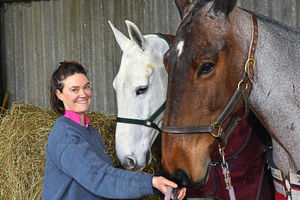
Mr McColgan's assistant at the kennels, whipper-in Daniel Hammet, was just 16-years-old when the ban came into force, but he was by that time already immersed in the culture.
"There are easier ways to make a living, but it's in the blood," he says.
"Some days I start work at six in the morning, and I won't be back home until 8pm.
"I have been hunting all my life. My grandfather was a dairy farmer in Devon, and he took me hunting when I was a child."
Part-time stable assistant Sue Benjamin is also steeped in the tradition, with her father David Randall having served as Albrighton huntsman from 1971 to 1979.
"It's a nice life," she says. "It's about being around the animals. The ban has made some difference, obviously, but you just try and keep going."
Julian Hill, from Penn in Wolverhampton, first started riding at the age of 23, and says it is the horses which attracted him to the sport.
"Heritage is important to everybody, it's about maintaining a traditional part of English life," he says.
Mr Hill, who is 50, says the original Albrighton Hunt was formed in 1825, and covered vast swathes of the countryside, from Newport and Stafford in the north, to Chaddesley Corbett in the south.

